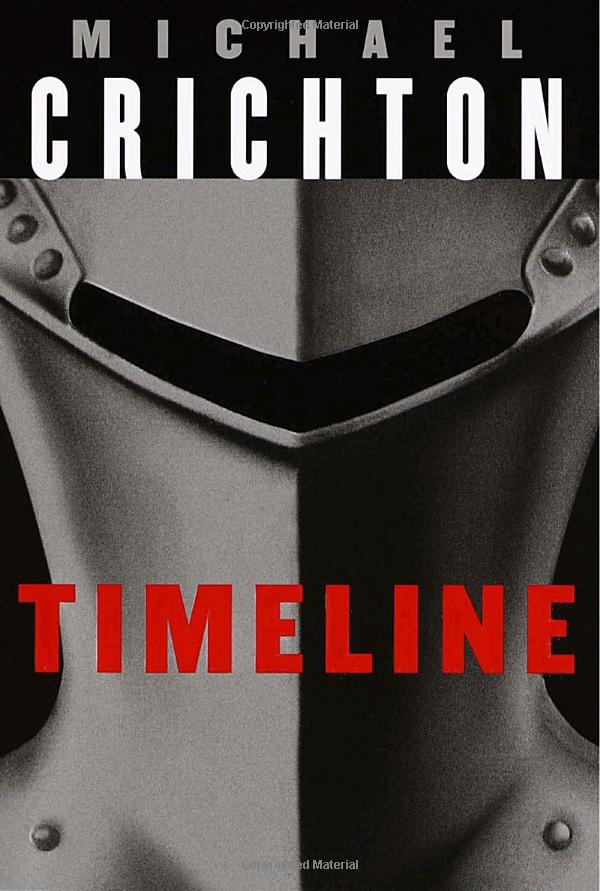 |
Entertainment > Reading >
Archaeologists discover the site they’re working on is surrounded by land owned by their funder, a rich technology company, which is even more interested in it than they.
A riveting book that escalates into a great pace by its middle, and had me turning pages until I finished that latter half in one afternoon. The end chapter is an embarrassingly-bad wrap-up though, which was saddening, but it did not ruin the story.
Highly-recommended. This book has turned me back into a reader.
-
Published 1999-11-16, by Alfred A. Knopf
- Note that Amazon is wrong; this is not abridged.
- ISBN-10 0-679-44481-5
- ISBN-13 9-780679-444817
-
This inspired Timeline – (2003 movie)
I skipped the introduction and read it after finishing the book. I’m very glad I did. Why are authors so stupid?
01:13:52 – p.393 ∞
An excerpt from near the end, that stood out to me:
Ask yourself, what is the dominant mode of experience at the end of the twentieth century? How do people see things, and how do they expect to see things? The answer is simple. In every field, from business to politics to marketing to education, the dominant mode has become entertainment.
Today, everybody expects to be entertained all the time. Business meetings must be snappy, with bullet lists and animated graphics, so executives aren’t bored. Malls and stores must be engaging, so they amuse us as well as sell us. Politicians must have pleasing video personalities and tell us only what we want to hear. Schools must be careful not to bore young minds that expect the speed and complexity of television. Students must be amused — everyone must be amused, or they will switch: switch brands, switch channels, switch parties, switch loyalties. This is the intellectual reality of Western society at the end of the century.
In other centuries, human beings wanted to be saved, or improved, or freed, or educated. But in our century, they want to be entertained. The greatest fear is not of disease or death, but of boredom. A sense of time on our hands, a sense of nothing to do. A sense that we are not amused.
But where will this mania for entertainment end? What will people do when they get tired of television? When they get tired of movies? We already know the answer — they go into participatory activities: sports, theme parks, amusement rides, roller coasters. Structured fun, planned thrills. And what will they do when they tire of theme parks and planned thrills? Sooner or later, the artifice becomes too noticeable. They begin to realize that an amusement park is really a kind of jail, in which you pay to be an inmate.
— Michael Crichton, Timeline – (1999 book), chapter 01:13:52, p.393

